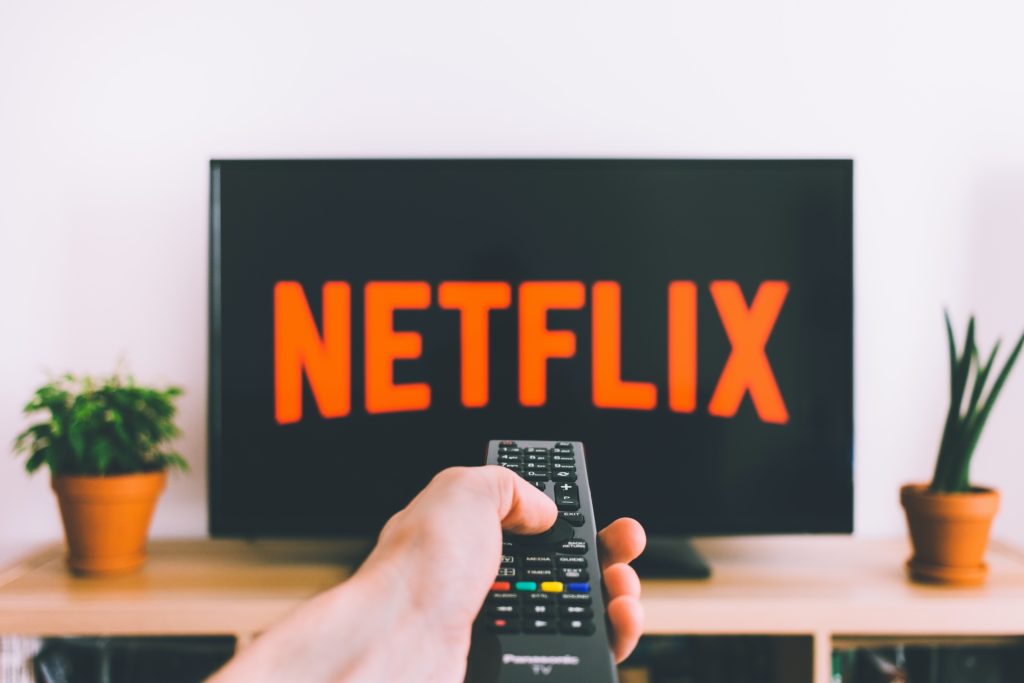
I was having a conversation with my good friend and colleague Marcus Thornton, Chief Marketing Officer of Scheels, about the challenges Netflix is facing. So it’s fair to say Netflix is not having the best time ever right now. Instead of achieving 2 million more subscribers, they lost 200,000. The stock price is the lowest it’s been in five years. Employee morale is reportedly through the floor. The world is watching to see if the streaming giant has merely stumbled or if this is the beginning of a fall.
We begin with Netflix occupying a reasonably strong position – both Loved and Trusted by the public. Think about the whole Netflix and Chill phenomenon. Here we have a case of a brand being explicitly called out as integral to having a good time with your favorite person. There’s a serious amount of love going on.
But something happened. The relationship that was so strong has started to sour. Why? Let’s look at some choices Netflix has made and how they have contributed to the change in the way people feel about the brand.
Love Doesn’t Mean Giving Someone Everything They Want: You Have to Do More Than That.
Have you noticed how Netflix went from having everything you could ever want to watch to having nothing you’re excited about seeing? This is, we believe, directly attributable to the strength of the recommendation algorithms Netflix uses.
At first glance, the logic is sound. Someone likes a particular program and serves them up more content of that type. But – as you’ve undoubtedly experienced – it doesn’t take very long for all of your recommendations to look alike. The algorithms don’t stray too far from the tried and true. It just serves up more of what you’ve already enjoyed.
What’s missing from this experience? Delight. Discovery. The experience of finding something fresh and unexpected that you didn’t know you would like something people love. Netflix’s vast library undoubtedly contains many hidden gems people would happily pay to keep watching – if they ever saw it in the first place. If only there were a way to introduce serendipity into the algorithm, Netflix would be well on the way to getting some of that love back.
And Let’s Be Real: It’s Always About the Money, Honey
Netflix raised its prices steadily over the course of the pandemic. While price hikes are never welcome, doing so when their customer base was already feeling trapped by COVID restrictions was an interesting choice. There was much new financial stress introduced into people’s lives during the pandemic. Adding to this burden at this time was a choice Netflix made that negatively impacted the amount of love their customers feel toward the brand.
In much the same vein, the reports that Netflix is now open to advertising have created delight among advertising agencies – and absolutely nobody else. Customers on the fence about the value of their Netflix membership are not going to be persuaded to stay by adding commercials to the viewing experience.
The third leg of this tripod of terrible is the crackdown on password sharing. Does password sharing cost Netflix lots of money? Absolutely. Do they have the right to limit the delivery of their service to people who pay for it? No doubt. Is the ideal time to address this issue during a period where membership numbers are dropping fast and your employees have just lost tons of money as the value of their options plummeted? Perhaps not. Certainly not if Netflix asks the question, “Will this move make our customers love us more?”
The Route to Screen Needs to Change – Considering a Post-Binge Netflix
Live by the sword, die by the sword is wisdom that applies in many situations, but in this case, let’s look at it in terms of content creation. Netflix has produced some amazing original content, using a model that involves hiring well-known stars and providing generous budgets. These shows have dropped a series at a time, keeping with the love people have for binge-watching.
This all bears re-examining, given the pandemic and the much more competitive environment the streaming industry has become. Netflix’s studio arm just isn’t as strong as Disney or Paramount, which have decades of experience in fundamentals-based storytelling. Star power can not be purchased in sufficient quantities to guarantee great content. That being said, Netflix should get some credit for bringing in stars from around the world to keep things going. Case in point, Squid Games, the survival drama that introduced Americans to top Korean actors.
Additionally, a lot of Netflix’s original content is highly derivative of content that has already performed well for Netflix or another studio. It will be difficult at a time when the most comfortable response to tension is to pursue whatever appears to be the safest course, but in terms of content creation, it may be time to give the muse even more freedom. If there was ever a time Netflix needed to be more creative, it’s now.
Forcing creativity is hard. Thinking strategically about the content release is much easier. Just because a show can be binged doesn’t mean it should be binged. Subscriber retention becomes easier when viewers need to wait to see what happens next. Love requires growth. While the binge-centric model of dropping entire seasons at once may be what’s known and familiar, it could be time for Netflix to explore what might work better.
What Did I Miss?
Obviously, this is a big story with many different angles to consider. What do you think? What has Netflix done that’s reduced how much their customers love and trust them? What moves would you recommend to get Netflix back on a more positive trajectory? I’m very eager to hear your thoughts.
